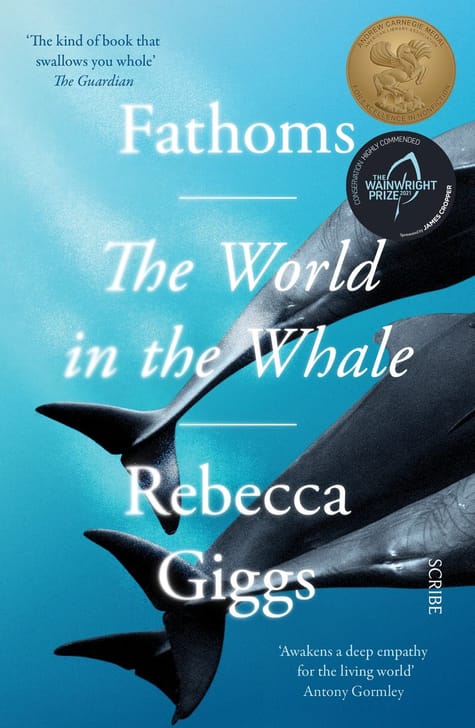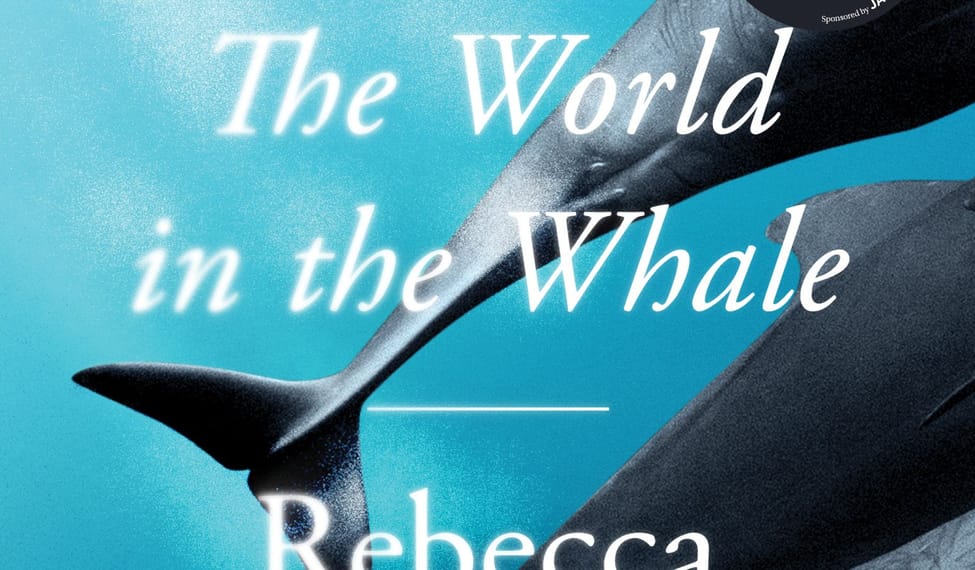Fathoms:
the world in the whale
Overview
Winner of the Andrew Carnegie Medal for Excellence in Nonfiction, Finalist for the Kirkus Prize for Nonfiction, and the PEN/E.O. Wilson Literary Science Writing Award, Shortlisted for the Stella Prize, Highly Commended in the Wainwright Prize for writing on global conservation, and a Sunday Independent Book of the Year.
How do whales experience environmental change? Has our connection to these animals been transformed by technology? What future awaits us, and them?
Fathoms blends natural history, philosophy, and science to explore these questions. Giggs introduces us to whales so rare they have never been named and tells us of whale ‘pop’ songs that sweep across hemispheres. She takes us into the deeps to discover that one whale’s death can spark a great flourishing of creatures. We travel to Japan to board whaling ships, examine the uncanny charisma of these magnificent mammals, and confront the plastic pollution now pervading their underwater environment.
Details
- Format
- Size
- Extent
- ISBN
- RRP
- Pub date
- Rights held
- Other rights
- Paperback
- 198mm x 129mm
- 368 pages
- 9781913348809
- GBP£9.99
- 8 July 2021
- World [excl NA]
- NA Simon & Schuster
Korean lang., World BADA Publishing
Awards
- Shortlisted for the 2021 American Library Association Andrew Carnegie Medal for Excellence in Nonfiction
- Winner of the 2021 Andrew Carnegie Medal for Excellence in Nonfiction
- Winner of the 2020 Nib Literary Award
- Shortlisted for the 2020 Kirkus Prize for Nonfiction
- Shortlisted for the 2021 The Stella Prize
- Winner of the 2021 WA Premier’s Prize for an Emerging Writer
- Commended for the 2021 The Wainwright Prize for Writing on Global Conservation
- Shortlisted for the 2022 Adelaide Festival Awards for Literature for Non-Fiction
- Shortlisted for the 2021 PEN/E.O. Literary Science Writing Award
Praise
‘Fathoms is perhaps the finest book written about whales since Moby Dick was published 170 years ago. It’s also one of the best accounts I’ve ever read of the interaction, intended and unintended, between humans and other species — a work of genuinely literary imagination.’
‘Fathoms took my breath away. Every page is suffused with magic and meaning. Humanity’s relationship with nature has never been more important or vulnerable, and we are truly fortunate that at such a pivotal moment, a writer of Rebecca Giggs’s calibre is here to capture every beautiful detail, every aching nuance. She is in a league of her own.’
About the Author
Rebecca Giggs is a writer from Perth, Western Australia. Her work has been widely published, including in Best Australian Essays, Best Australian Science Writing, Best Australian Stories, Granta, Aeon, The Atlantic, The New York Times Magazine, and Griffith Review. Rebecca’s nonfiction focuses on how people feel about, and feel for, animals in a time of technological change and ecological crisis.


